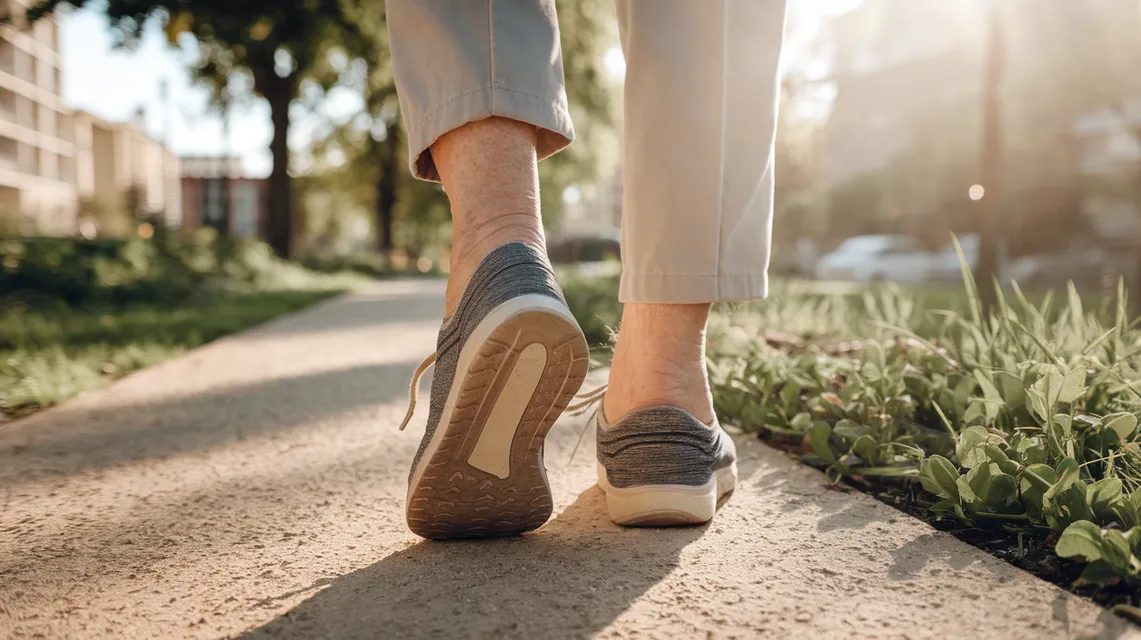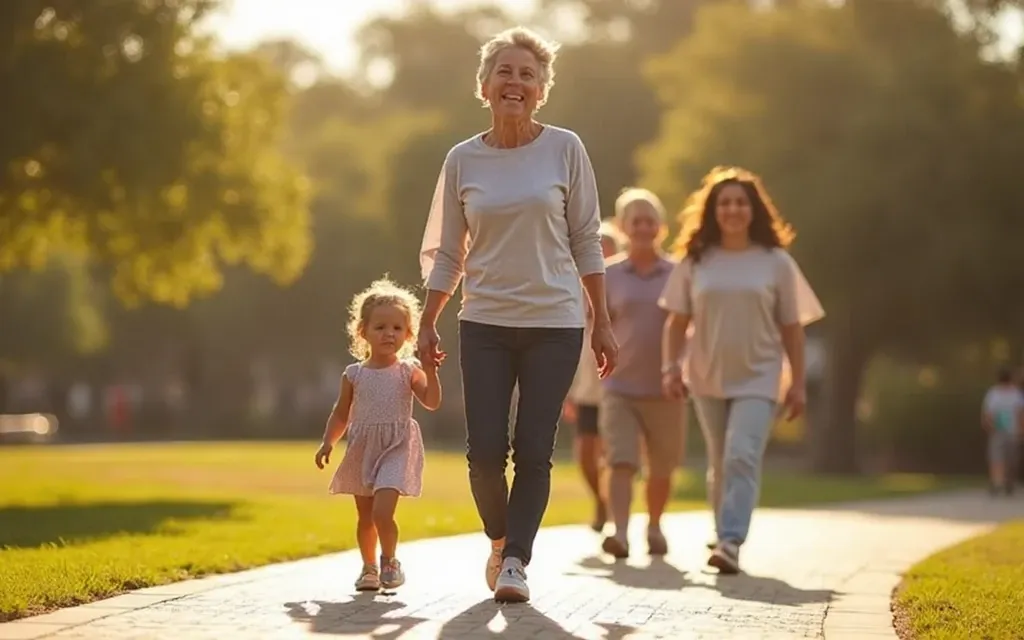In the U.S., over 54 million adults are 65 or older, according to the Census Bureau. Many face challenges like arthritis or balance issues that threaten their independence. However, senior health isn’t just about avoiding illness—it’s about thriving. By focusing on physical strength, mental clarity, and emotional joy, seniors can live fuller lives. A big part of that is caring for your feet.
Foot health is often overlooked, but it ties directly to mobility and overall wellness. This guide offers practical tips to age gracefully, from spotting common health issues to staying active with simple exercises like walking. Whether you’re a senior or supporting a loved one, these steps can make a difference. Ready to boost your body, mind, and feet? Let’s begin.

Common Health Issues in Seniors
Aging brings changes, and for seniors, that often means new health hurdles. The National Institute on Aging lists arthritis, diabetes, and heart disease as top concerns. Over 34 million U.S. seniors have arthritis alone. These conditions can limit movement, cause pain, or even affect moods, leading to anxiety or depression. Knowing what’s common empowers seniors and caregivers to act early.
Consider cognitive health. Alzheimer’s affects over 6 million Americans over 65, per the Alzheimer’s Association. Memory issues or confusion can disrupt daily life, but awareness opens doors to support like memory classes or doctor visits. Early detection through regular check-ups can slow these issues, keeping seniors in control.
The key is don’t wait for problems to pile up. A 2023 CDC report found seniors who get annual screenings catch 70% of health issues before they worsen. Whether it’s a blood sugar test or heart exam, staying proactive beats reacting later. Knowledge is power—understanding these risks helps seniors live healthier, longer.
The Importance of Foot Health
Foot health is often overlooked, but it’s the foundation of senior mobility and independence. The American Podiatric Medical Association reports that over 75% of Americans will experience foot pain at some point, and this risk increases with age. Common issues include bunions, plantar fasciitis, and neuropathy, which can make walking uncomfortable or even dangerous.
Healthy feet mean more freedom. When your feet hurt, you’re less likely to stay active, which can lead to weight gain, muscle loss, and even a higher risk of falls. According to the CDC, falls are the leading cause of injury among seniors, with poor foot health being a major contributor. Simple steps like daily foot checks, moisturizing, and wearing properly fitted shoes can make a big difference.
Supportive footwear is essential. Shoes with good arch support and cushioned insoles help absorb shock, reduce fatigue, and prevent blisters or calluses. If you have diabetes or circulation issues, checking your feet daily and choosing seamless socks can prevent complications. Don’t hesitate to consult a podiatrist for persistent pain—early intervention can keep you moving comfortably.
Staying Active: Simple Exercises for Seniors
Physical activity is key to aging gracefully. The CDC recommends at least 150 minutes of moderate-intensity exercise per week for adults over 65. Walking is one of the safest and most accessible options. It’s easy on the joints, requires no special equipment except comfortable shoes (and insoles for extra support), and can be done almost anywhere.
Other great exercises include gentle stretching, chair yoga, water aerobics, and light resistance training with bands. These activities help maintain muscle strength, flexibility, and balance—critical for preventing falls and injuries. Even short sessions, like 10-minute walks after meals, add up over time.
Staying active also boosts mental health. Harvard research shows that seniors who exercise regularly report less depression and sharper thinking. Group activities, like walking clubs or dance classes, add a social element that reduces loneliness and increases motivation. Remember, it’s important to start slow and listen to your body. If you have chronic pain or medical conditions, consult your doctor before beginning a new routine.

Nutrition and Lifestyle Tips for Graceful Aging
Good nutrition and healthy habits are crucial for seniors. A balanced diet rich in fruits, vegetables, lean protein, and whole grains supports muscle and bone health. The National Institute on Aging recommends limiting processed foods, added sugars, and sodium to manage weight and blood pressure.
Hydration is often overlooked. Seniors should aim for at least 6–8 glasses of water daily, as dehydration can cause fatigue and confusion. Calcium and vitamin D are especially important for bone strength. If you have dietary restrictions, ask your doctor or a registered dietitian about supplements.
Sleep and stress management also matter. Aim for 7–8 hours of sleep each night, and develop routines that help you wind down, like reading or gentle stretching. Mindfulness practices, such as meditation or deep breathing, can reduce anxiety and improve mood. Staying socially engaged—whether through volunteering, hobbies, or regular calls with family—keeps the mind sharp and spirits high.
Key Takeaways for Aging Gracefully
Aging gracefully means more than avoiding illness—it’s about enjoying life, staying active, and protecting your independence. Prioritize regular check-ups, foot care, and daily movement. Choose supportive shoes and consider cushioned insoles if you experience foot discomfort. Eat well, stay hydrated, and nurture your mind and relationships. Remember, it’s never too late to start healthy habits. Every small step adds up to a longer, happier life.
If you notice persistent pain, balance problems, or changes in memory, consult a healthcare professional. Early action can keep you feeling your best for years to come. Aging is a journey—embrace it with confidence, curiosity, and care.


